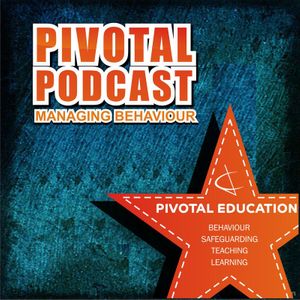Making Sustainability Sustainable in Schools with Victoria Tait – 207
Pivotal Podcast - Un pódcast de Pivotal Education

Categorías:
Victoria Tait is Education for Sustainability Coordinator at Anglia Ruskin University in Cambridge. As EfS coordinator, Victoria’s role is to ensure that sustainability is an integral part of both staff and students’ experiences and learning whilst at our University. Victoria works with staff to explore how sustainability links to the curriculum, and supports individual staff members to carry out a funded learning project on a sustainability themed topic of their choice. Before joining Anglia Ruskin, Victoria spent two and a half years as a Project Manager at SEEd – a Sustainability and Environmental Education charity which helps educators to embed sustainability into young people’s learning. Now Victoria works with our students to ensure that they feel prepared for the future and are equipped with the relevant sustainability skills. Our aim is for all students at Anglia Ruskin to be offered the opportunity to experience learning based on and around real-world issues, especially those related to environmental sustainability and social responsibility (ethics, well-being, social justice, global citizenship, moral responsibility). The SEEd campaigned to change the education act to realign to purpose of education around the ethos of ‘care’. Althpough initially unsucessful, the campaign has now been taken up by environmental campaigner, Chris Packham in his manefesto. Care for one’s self * Food – start your own ‘Edible Playground‘ and produce food for the school or for the local community * Exercise – University of Copenhagen study links exercise to learning retention – the effects can last up to 4 hours so try out things like the Walking School Bus and organisations like sustrans * Outdoor learning – being outside can improve your mental health according to a study by Mind – also check out Forest Schools Care for others * Think about people on the other side of the world and how what we do affects them * Think about the impact of the products you choose to buy – have they been produced sustainably? * Link up with others via The World’s Largest Lesson and learn about the Sustainable Development Goals Care for the environment * Recycling is important but there’s so much more * Reduce the energy we use and consider how we are getting the energy we use – is it a sustainable source and if not can we change to a more sustainable source? * Investigate Ashton’s Less CO2 schools energy reduction programme * Make sure everyone in the school is involved